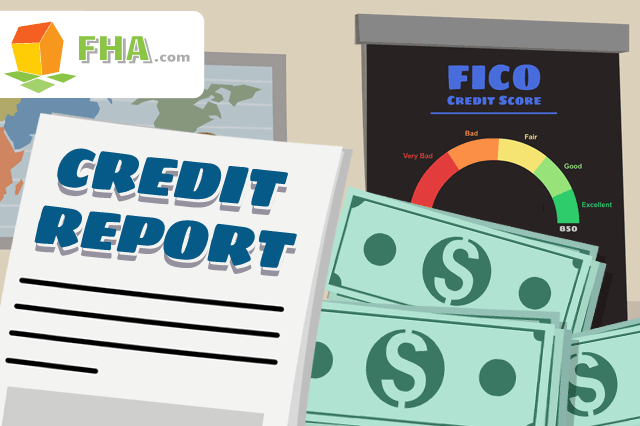Premium Credit Scores and FHA Mortgages

Even if you find your FICO scores in a lower part of the credit score spectrum, FHA loan guidelines state that there is a range of scores that qualify for maximum financing (580 and above) and scores that still technically qualify for the FHA home loan program but require a higher down payment (FICO scores 500 to 579 are in this range).
FHA Requirements Are Not Lender Standards
These are FHA loan program minimums and NOT lender requirements, which may be higher. That’s one reason why you’ll find home loan blogs and publications urging house hunters and first-time home buyers to shop around for their FHA home loan.
Home buyers in the lower ends of the credit score spectrum will find FHA home loans to be more forgiving and provide flexible options to get a mortgage loan without a 20% down payment. But if you do not have a premium credit score, what can be done to get close to FHA loan approval?
Housing Counseling Can Help
For a start, if you are not sure your credit scores qualify, it may be a very good idea to get some housing counseling from a HUD-approved agency; call 1-800 CALL FHA for a free referral from the government agency to a HUD approved counselor in your area. They can help with home loan prep questions and questions about the process of getting qualified for a mortgage.
Next, it’s important to respect the 12-month rule for on-time payments on all financial obligations. If you can wait to apply for your new home loan until you are certain you’ve got a solid 12 months of “no late payments” on your credit history, your chances at loan approval are much better AND you may help improve your own credit rating in the meantime.
You can take any additional time required to save more money for a down payment or continue to search for down payment assistance programs in your local area.
Credit History Is an Important Factor in FHA Loan Approval
Those without premium credit scores may find that their credit history is an important part of the lender’s decision to approve or deny a mortgage loan. If your history shows a good track record of financial responsibility, your FICO scores may be offset by this.
Some who have had negative financial events in their lives have less-than-ideal credit scores. In such cases, when the lender can see the patterns of good credit use up to those negative events, it’s much easier to justify approving the loan.
Your loan officer may need additional documentation from you in some cases to explain the negatives on the credit report, but rest assured that this is done in an attempt to justify approving your loan.
------------------------------
RELATED VIDEOS:
A Good Faith Estimate Provides Mortgage Information
Measuring Your Loan-to-Value Ratio
Monitor Your Credit Score

Do you know what's on your credit report?
Learn what your score means.







